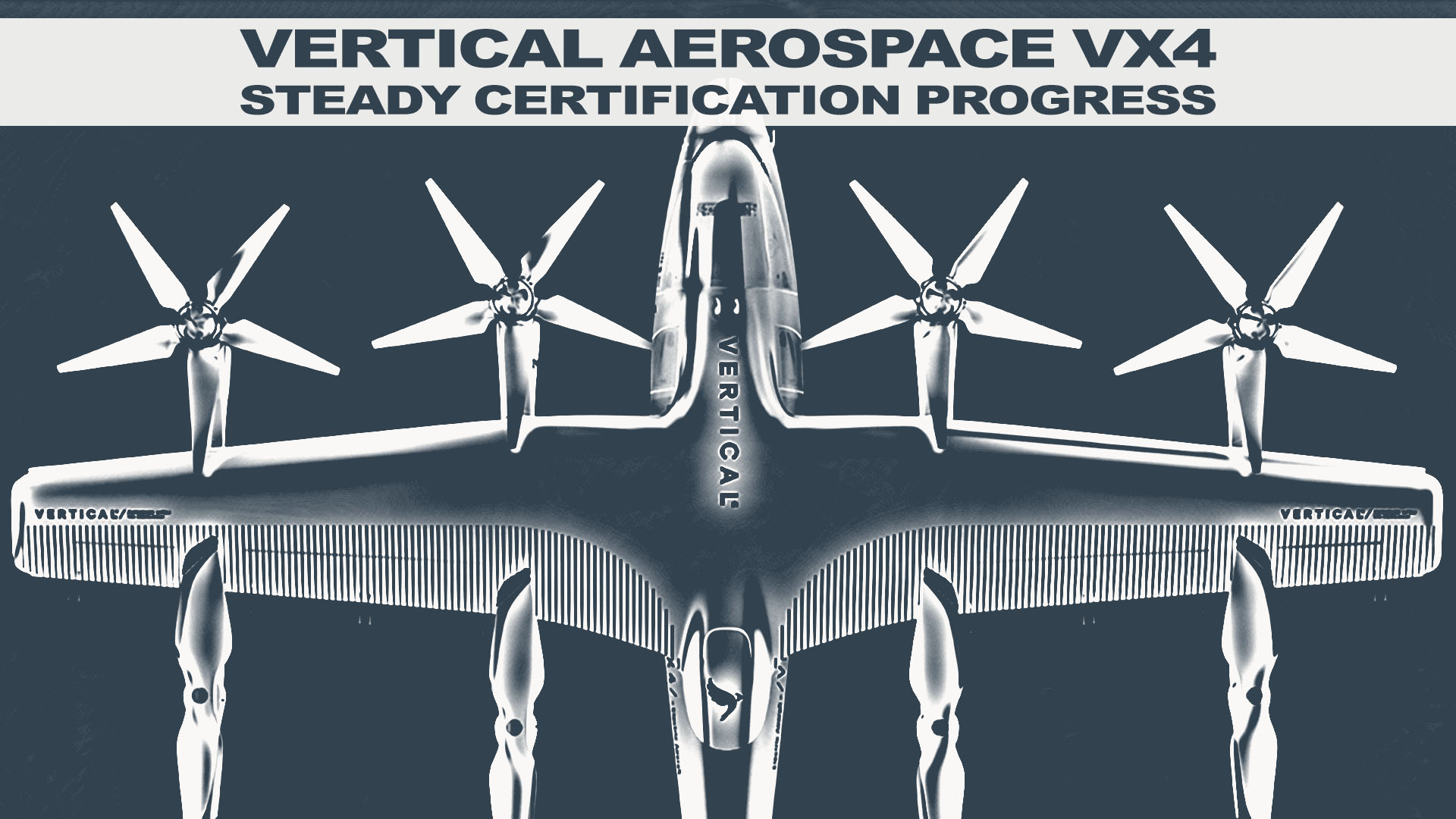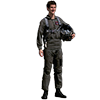eVTOL Firm Vertical Aerospace Earns CAA Design Organisation Approval

Photo illustration of the Vertical Aerospace VX4 eVTOL prototype as it and the company progress through international certification milestones.
Original source image courtesy: Vertical Aerospace
Vertical Aerospace, a British electric aircraft company, has achieved a major milestone in its effort to certify its VX4 eVTOL aircraft. The company has been awarded Design Organisation* Approval (DOA) by the UK Civil Aviation Authority (CAA), making it the first eVTOL manufacturer to receive the designation.
Design Organisation Approval is a prerequisite for obtaining a Type Certificate, which is the final approval for an aircraft to operate commercially. The DOA authorizes Vertical Aerospace (Vertical) to conduct design activities and issue design approvals within the scope of its certification program. According to the company, the CAA granted the DOA after assessing the company's procedures, quality management system, technical workforce competence, facilities and equipment.
The VX4 is a piloted eVTOL aircraft that can carry four passengers (plus the pilot) and fly up to 100 miles (160 km) at a cruise speed of of 150 mph (241 km/h), claims Vertical. The aircraft uses electric motors and batteries, which can be recharged in less than an hour. Vertical Aerospace conducted a successful tethered flight of a prototype VX4 in September last year, and plans to test higher altitudes, speeds, and the transition from vertical to horizontal flight.
The company aims to certify the VX4 by 2025 and enter service by 2026. It has secured pre-orders from leasing firm Avolon, Japan Airlines, and Marubeni Corporation, a Japanese conglomerate. The VX4 is expected to be used for urban air mobility, regional air travel, and cargo delivery. In a press release, Vertical claims to have "a leading pre-order book for more than 1,400 aircraft from a diverse global customer base..."
Vertical is working with other regulators to certify its VX4 in additional markets. The company has initiated the certification process in Japan with the Japan Civil Aviation Bureau (JCAB), and is in discussions with the European Union Aviation Safety Agency (EASA), the US Federal Aviation Administration (FAA), and the National Civil Aviation Agency of Brazil.
As with every new aircraft type or iterative design, the company faces challenges on its certification journey. The VX4 will have to meet emerging and evolving safety and environmental standards, as well as demonstrate interoperability with existing air traffic management systems, along with likely multi-billion dollar certification costs. The company will also have to overcome public perception and acceptance issues regarding eVTOL aircraft both in the airline and Urban Air Mobility (UAM)/Advanced Air Mobility (AAM) roles.
Vertical is collaborating with several major vendors to develop and produce the VX4. These include Honeywell for avionics and flight control systems, Rolls-Royce for electric powertrain systems, GKN Aerospace for composite structures, Solvay for advanced materials, and Dassault Systèmes for digital design tools.
*Organisation is the standard spelling in the UK - Editor

Craig has decades of experience contributing to Flight International, Aviation Week, KCRW, NPR, and appearances on the Discovery, Military and History Channels.

 Welcome to AeroSpaceNews.com, the world's first
Welcome to AeroSpaceNews.com, the world's first